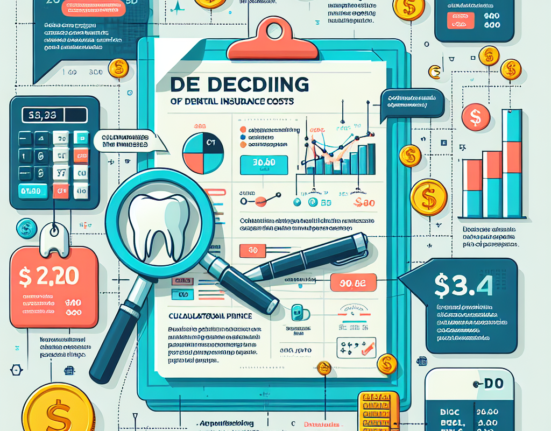Understanding the Significance of Health Insurance: Safeguarding Your Health and Financial Stability
Health insurance is a vital component of our overall well-being and financial security. It provides a safety net that protects us from the potentially devastating costs of medical care. Understanding the significance of health insurance is crucial in today’s world, where healthcare costs continue to rise and unexpected medical emergencies can occur at any time.
One of the primary benefits of health insurance is its ability to safeguard our health. With health insurance coverage, individuals have access to a wide range of medical services, including preventive care, routine check-ups, and necessary treatments. Regular check-ups and preventive care can help detect potential health issues early on, allowing for timely intervention and better health outcomes. Without health insurance, many individuals may delay or forgo necessary medical care due to financial constraints, leading to more severe health conditions and higher healthcare costs in the long run.
In addition to protecting our health, health insurance also plays a crucial role in preserving our financial stability. Medical expenses can be exorbitant, especially for complex procedures or long-term treatments. Without insurance, individuals may find themselves burdened with overwhelming medical bills, leading to financial strain and potential bankruptcy. According to a study by the American Journal of Public Health, medical bills are a leading cause of bankruptcy in the United States, with approximately two-thirds of bankruptcies being related to medical expenses. Health insurance provides a safety net that shields individuals from the financial repercussions of unexpected medical emergencies, ensuring that they can focus on their recovery rather than worrying about the cost of care.
The Vital Role of Health Insurance in Preserving Your Well-being and Economic Security
Health insurance plays a vital role in preserving both our well-being and economic security. It acts as a buffer against the high costs of medical care, ensuring that individuals can access the necessary treatments and services without facing financial hardship. Without health insurance, individuals may be forced to make difficult choices between their health and their financial stability.
One of the key ways health insurance preserves our well-being is by providing access to a network of healthcare providers. With insurance coverage, individuals can choose from a wide range of doctors, specialists, and hospitals, ensuring that they receive the best possible care for their specific needs. This access to quality healthcare can make a significant difference in health outcomes and overall well-being.
Furthermore, health insurance also promotes preventive care and early intervention. Many insurance plans cover preventive services such as vaccinations, screenings, and wellness programs. By encouraging individuals to seek preventive care, health insurance helps identify potential health issues before they become more severe and costly to treat. For example, regular screenings can detect conditions like cancer or heart disease at an early stage when they are more treatable and less expensive to manage.
From an economic standpoint, health insurance provides a crucial safety net that protects individuals from the financial burden of medical expenses. According to a report by the Kaiser Family Foundation, the average cost of a hospital stay in the United States is over $15,000. Without insurance, individuals may be unable to afford such expenses, leading to significant debt or even bankruptcy. Health insurance ensures that individuals have access to affordable healthcare, reducing the financial strain and preserving their economic security.
Prioritizing Health Insurance: A Wise Investment for Your Physical and Financial Health
Prioritizing health insurance is a wise investment that not only protects your physical well-being but also safeguards your financial health. It is essential to recognize the long-term benefits of having health insurance and the potential consequences of being uninsured.
Investing in health insurance is an investment in your physical well-being. With insurance coverage, you have access to a wide range of healthcare services, including preventive care, screenings, and treatments. Regular check-ups and preventive care can help detect potential health issues early on, allowing for timely intervention and better health outcomes. By prioritizing health insurance, you are taking proactive steps towards maintaining your health and preventing more severe health conditions in the future.
Moreover, health insurance is a wise investment for your financial health. Medical expenses can be unpredictable and often come with hefty price tags. Without insurance, individuals may find themselves burdened with overwhelming medical bills, leading to financial strain and potential bankruptcy. By prioritizing health insurance, you are protecting yourself from the financial repercussions of unexpected medical emergencies. It provides a safety net that shields you from the high costs of medical care, ensuring that you can focus on your recovery rather than worrying about the cost of treatment.
It is important to note that the cost of health insurance premiums may seem like an additional expense, but it is a small price to pay compared to the potential financial burden of being uninsured. According to a study by the National Bureau of Economic Research, uninsured individuals are more likely to delay or forgo necessary medical care due to cost concerns. This delay in seeking care can lead to more severe health conditions and higher healthcare costs in the long run. By prioritizing health insurance, you are making a wise investment that can save you from significant financial hardship in the future.
Unveiling the Benefits of Health Insurance: Shielding Your Well-being and Finances from Unexpected Medical Expenses
Health insurance offers a multitude of benefits that shield both your well-being and finances from the unpredictable nature of medical expenses. By understanding and embracing these benefits, individuals can ensure that they are adequately protected from the financial burden of unexpected medical emergencies.
One of the primary benefits of health insurance is its ability to shield your well-being from unexpected medical expenses. With insurance coverage, individuals have access to a wide range of medical services, including emergency care, hospital stays, surgeries, and prescription medications. These services can be incredibly costly without insurance, potentially leading to significant financial strain. Health insurance ensures that individuals can receive the necessary medical care without worrying about the financial burden, allowing them to focus on their recovery and overall well-being.
In addition to protecting your well-being, health insurance also safeguards your finances from unexpected medical expenses. Medical bills can quickly accumulate, especially for complex procedures or long-term treatments. Without insurance, individuals may find themselves facing overwhelming debt or even bankruptcy. According to a survey by the Kaiser Family Foundation, approximately 25% of uninsured individuals reported having problems paying medical bills, compared to only 9% of those with insurance. Health insurance provides a safety net that shields individuals from the financial repercussions of unexpected medical emergencies, ensuring that they can maintain their financial stability and avoid falling into debt.
Furthermore, health insurance also offers additional benefits that can contribute to your overall well-being and financial security. Many insurance plans cover preventive services such as vaccinations, screenings, and wellness programs. By taking advantage of these preventive services, individuals can detect potential health issues early on, leading to better health outcomes and potentially reducing the need for costly treatments in the future. Additionally, some insurance plans offer access to discounted rates for prescription medications, further alleviating the financial burden of managing chronic conditions.
In conclusion, health insurance is of utmost importance in safeguarding both your well-being and financial stability. It provides access to necessary medical care, promotes preventive services, and shields individuals from the potentially devastating costs of unexpected medical expenses. By prioritizing health insurance as a wise investment, individuals can ensure that they are adequately protected and can focus on their physical and financial health without the fear of financial hardship.












Leave feedback about this